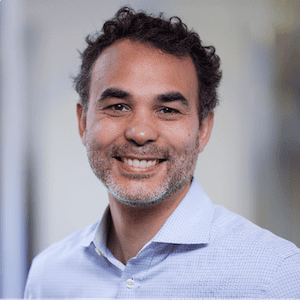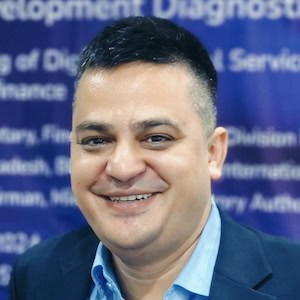-
The Future of Work is Coming: MIT Seeks Tech Solutions to Adapt to the Impending Transformation
High-tech innovations like artificial intelligence, automation and the cloud are dramatically changing the nature of work. Some believe these changes will lead to massive job losses, while others imagine a future with plentiful and satisfying careers in industries we’ve yet to imagine. MIT’s Solve initiative is looking for solutions that ensure that no one is left behind by technology. Hala Hanna encourages innovators and entrepreneurs to enter Solve’s Work of the Future Challenge, which is open until July 1.
- Categories
- Technology
-
Meat Every Day: How a Rwandan Entrepreneur Aims to Satisfy Africa’s Changing Appetites
Some predict that, by the end of the century, 13 African cities will surpass New York City in population. As African economies grow and their citizens become more urbanized, their standards of living and meat consumption are also likely to increase. This shift will reshape the continent's agriculture industry – and entrepreneurs like Herve Tuyishime are responding. Tuyishime explains how his two interrelated businesses are helping satisfy Africans' growing appetite for meat, and bringing Rwandan farmers into the supply chain.
- Categories
- Agriculture, Social Enterprise
-
The Path to 100 Gigawatts: How India Has Emerged as a Global Leader in Solar Energy
India has displaced Japan as the third-largest market for solar power and is poised to bump the U.S. from the No. 2 spot, as it works toward boosting its renewable capacity to 100 gigawatts by the end of 2022. Though it still relies on coal plants and has dangerous air pollution levels, the landscape is changing fast, with 14 new solar parks planned – including one that's set to become the world’s largest. Sahaj Desai outlines the momentum and challenges behind India's renewable energy revolution.
- Categories
- Energy
-
Up to 2.5 Billion People Need Glasses: Can This Hardware Innovation Deliver?
Roughly 25 percent of the global population needs glasses, but lacks access. The problem isn't cost: Affordable glasses are readily available in emerging markets. What's lacking are trained eye care specialists. The social startup PlenOptika is tackling that issue with a device called the QuickSee: a binocular-sized autorefractor that non-specialists can use to scan a patient’s eyes and produce an eyeglass prescription within seconds. Paul Scott, director of engineering for ASME, discusses the innovation, and the challenges and rewards of running a social hardware startup.
- Categories
- Health Care, Social Enterprise, Technology
- Tags
- partnerships
-
Inspiration, Ideation and Implementation: How Design Thinking Can Build Robust and Sustainable mHealth Ventures
Design thinking can help mHealth ventures develop their value propositions and potential impacts, meet customer needs, and shape business models that stand the test of time. In the final post in his series on making mHealth businesses sustainable, Khanjan Mehta provides a structured framework that helps these enterprises determine their viability, particularly in the early conceptualization phase.
- Categories
- Health Care, Technology
-
The Funder Problem: Good Intentions Aren’t Enough
Despite their good intentions, funders are often the biggest barriers to social enterprises or nonprofits achieving impact. Open Road Alliance, a philanthropic initiative that gives emergency grants to impact-focused organizations, gathered and analyzed five years of data about roadblocks faced by over 100 grantees. Nearly half of the problems the group found were caused by funders. Laurie Michaels describes the three categories of funder-related barriers that account for the most frequent challenges – and offers some surprisingly easy fixes.
- Categories
- Social Enterprise
-
Using Findex Wisely: Understanding the Strengths and Weaknesses of the World’s Biggest Financial Inclusion Dataset
The Global Findex report is an essential piece of data for the financial inclusion sector, but its insights should nevertheless be treated with caution, says Daniel Rozas. Exploring some inexplicable findings in the recent Findex 2017 release, he breaks down the limits of survey-based data, and explains how Findex can be used in combination with other forms of data to get a more accurate picture of financial inclusion progress.
- Categories
- Finance
-
Making the Case for Early-Stage Impact Investing
In many emerging markets, social entrepreneurs are financing their ventures with personal funds and high-interest loans - mainly because it's so tough to grow out of the startup phase without being able to show financial returns. The nonprofit Beyond Capital Fund provides pro bono advisory services to help investee enterprises establish and implement operating procedures and regular impact reporting systems, writes CEO Eva Yazhari. She explains how these formalized structures lend credibility and stability to sustain the businesses and attract potential investors - functions that are often lacking in the impact investing ecosystem.
- Categories
- Investing, Social Enterprise










